#Political Journalism
Explore tagged Tumblr posts
Text
Okay, this one's been building for a while. It's going to be long even for my usual standards. Strap in for a really LONG RANT (TM).
INTRODUCTION
Over the last 4 years, the news media has substantially degraded in their ability to do any significant analysis of political events. Maybe it's the drop in viewership after the Trump presidency, but something's off. People calling themselves political journalists are falling for the stupidest nonsense and failing even the most basic understanding of politics.
MY FIRST INKLING
Over the last few decades, I've put together a list of journalists who are consistently interesting and insightful. I look for their pieces when they come out and note when they change publications.
Over the last 4 years, however, nearly all of them have disappeared from major publications. David Weigel left the Washington Post and Jordan Weissman left Slate, both ended up at Semafor. William Saletan left Slate and Charlie Sykes no longer writes for The New York Times, both are now at The Bulwark. Matthew Yglesias left Vox and ended up writing on SlowBoring (although he occasionally also writes for Bloomberg News these days).
What do all of these have in common? All of them left fairly large, well-read publications and ended up at smaller, more niche publications. And they're not alone, a huge amount of competent, capable, and insightful journalists have quietly led an exodus from major publications since the end of the Trump presidency leaving behind journalists who don't seem to be nearly at the same level.
OVER THE LAST FEW YEARS
Take, for example, that we've all known for the last 4 years that Trump was going to run for president again. It wasn't a mystery. So why haven't we seen any coverage of him? Yes, he's not on Twitter anymore, but he still rants and raves on Truth Social. Yes, he's not president anymore, but he still does rallies all the time. Who's covering any of that? Do you know what he's said? Do you know if anything has changed about him since 2020?
Seriously, did you see any coverage of the insane things Trump has said or done over the last four years? Have you seen coverage of the Heritage Foundations Project 2025 plan? It's been four years, has the media actually vetted the presidential candidate of one of the two major parties? I mean, sure, he was president before, but it's been four years. Is there anything new we should know about? I already know a bunch of new things about him, but not because I read about it in major publications of the US news media.
The same lack of knowledge was clear when the media was covering the legislative battles in the first half of Biden's term. You had enough reporters shouting questions at Biden about why he didn't comment more about negotiations on his bipartisan infrastructure bill that he had to remind them all that it was a stupid question. Negotiations rely on trust and the easiest way to destroy that trust is to blab about everything you've discussed. Any reasonably competent journalist would know that, but apparently not the White House Press Corps.
You see the same thing happen again and again and again if you look for it. Coverage of Manchin and Sinema's antics during the legislative battles was nothing more than surface level commentary and did nothing to dig into their tactics and strategies or their goals and objectives. Coverage of Mitch McConnell's freeze-ups basically added no new information after the first hour. Heck, if you even wanted to know what Congressional negotiators were negotiating about in the various bills that they worked on, you'd have to look it up yourself.
TRUMP COVERAGE
What's brought this to a head for me is noticing the coverage of Trump over the last year. I've read tons and tons of detailed and nuanced articles from numerous major publications about his legal travails, but how many have there been about his politics and political fortunes? I'm sure you've read in detail how his New York City trial went, but how many articles have you read about how most of his stories at his rallies devolve into unintelligible nonsense? You've no doubt read about how the Supreme Court granted him a level of immunity from prosecution, but have you read any stories about the likely results of his economic plans?
What you're seeing is an example of how barren the political news landscape has become. Trump's trials are covered by the legal news team, a team that, at most publications and outlets still has a high degree of expertise and experience in their subject, and it shows! The comparison of the legal coverage of Trump to the political coverage of Trump is particularly damning, it's a team at the top of its game standing next to a team that clearly hasn't ever played before.
Tell me, have you seen any analysis of Trump's tax plans? Have you seen anyone discuss the likely effects of his deportation and immigration plans? Has anyone even looked at Project 2025, the plan that a large group of likely Trump staffers have come up with to guide his hoped for second term? And, once you start looking around, you'll realize this isn't even just a Trump problem! What do you know about Biden's proposed policies? Is he proposing any new ones or is he just running on the same things as last time?
THE DEBATE AND POST-DEBATE COVERAGE
Watching the coverage of the 2024 campaign is what really started crystalizing this in my head, but what pushed it over the edge and made me write this all out is the coverage of the debate. Look, we can all agree that Biden had a bad night, but is that literally the only thing a reputable journalist could write about?
Do you know how many falsehoods each candidate uttered that night? How about policies, did they mostly confirm their proposed policies or were there some surprises? We know that Biden seemed confused, but what about Trump? Was he in touch with reality? After all, it's much easier to seem confident and clear in something that you're making up on the spot than something that you have to remember; was he confidently spouting nonsense?
Honestly, the lack of journalistic professionalism didn't start with the coverage after the debate, it was on the stage as well. CNN had two journalists reading the questions, but why? They didn't do any follow-up, they didn't do any fact checking; why did we need journalists on the stage at all? They could have found a random guy off the street or a fourth grader if all they needed the moderater to do was ask questions. Heck, why not advertise your new AI? AI doesn't actually understand what it's reading, but clearly that isn't necessary anyways!
And the post-debate calls for Biden to resign from major outlets have been similarly devoid of actual journalism, resembling celebrity "news" coverage more than they do real investigation. What would it take for Democrats to replace Biden on the ticket? Who would/should be the replacement? If it's not Kamela Harris, what challenges would come up from bypassing the first black woman vice-president for a (likely) white guy? If it is Kamela Harris, what challenges and baggage does she bring to the race? Do any of the proposed candidates do better than Biden in general polling at this point?
If you don't know the answers to any of these questions, that's okay! Apparently real journalists don't even know enough to be asking the questions!
THE CLINTON AFFAIR
Haunting all of this is that the American news media royally screwed up in exactly the same way not that long ago. Eight years ago, the news media descended on the Clinton e-mail story like a pack of rabid piranhas, completely ignoring just about any other story. Every major news outlet (except for those in the right-wing news ecosystem which have no shame at all) has admitted that their coverage of the 2016 election was poor and that they focused on the e-mail story to the exclusion of actually vetting the two candidates, and yet here we are again.
And, for the record, there was literally nothing to the Clinton e-mail scandal. Clinton used a personal e-mail server much as Secretary Powell had done before her with permission from the State Department. Every classified e-mail on her server was found to have come from others inappropriately sending it to her rather than her sending it out. And yet, coverage dominated the 2016 election, driving a drip-drip-drip cycle that damaged Clinton immensely and distracted from any coverage of Trump's very real issues.
Coming out of that election, most news outlets committed to higher journalistic standards. They committed to more aggressive fact-checking, more investigation, and less hysterical coverage of single issues to the detriment of broader coverage, and, during the four years of Trump's term, they largely did that to varying degrees of success. That, more than anything, is what makes their recent decline that much more eggregious. They know how to do this correctly and are actively choosing not to.
WHERE TO FIND GOOD JOURNALISM
And now the answer to the question I've posed obliquely this whole rant: if so much of political journalism is bad, where can I find good journalism?
Honestly, there's not a lot of it out there, but it does exist. NPR, as usual, is a bastion of great journalism. They are sometimes prey to the same instincts that lead the broader media astray, but they've done a great job keeping in place the structures they built as a response to the 2016 election and Trump in general such as active fact-checking and analysis immediately after each interview rather than letting it wait until a lie or piece of misinformation has solidified. PBS is similarly effective in this way; public media, as always, remains pretty much the best large outlet for information in this country.
The Daily Show is also a great source for journalism which is a sad commentary on journalism because, as should be obvious, these people are comedians and not journalists. Still, they do great work, better than most actual journalists because they take seriously the charge to dig deeper for the real story and speak truth to power.
Outside of that, there aren't really any large media outlets that I would strongly recommend. There are, however, smaller news organizations that are doing good work.
Semafor, for example, has a lot of great analysis of politics and actually asks the kinds of questions I noted above and sometimes even finds answers to them. The Bulwark is another one, though it tends to do broader political analysis rather than up-to-the-minute reporting. There are also individual journalists and writers who put forth very insightful analysis in larger publications such as Fred Kaplan at Slate, Joshua Keating at Vox, and Tyler Cowen at Bloomberg, but these are generally the exception to the broader coverage at those outlets. There are also writers at smaller publications like Julia Ioffe who now writes for Puck, though I can't recommend the whole publication.
Honestly, though, it's pretty barren out there. I'd love to have more sources of information that can check each other and make sure I'm not being pulled off into a lane of misinformation, but I'm not finding much out there. Please, if you find any, let me know, I'd love to have more good sources.
SUMMARY/CONCLUSION
The American political news media, which improved significantly as a response to Trump, seems to have lost most of its institutional capacity since his defeat in 2020 to the point where they are now reduced to covering only a single story for days on end without adding any meaningful information or insightful analysis. Even a dedicated news hound like me is left frustrated with the difficulty of finding meaningful coverage and the drumbeat of nonsense is preventing this country from having a real discussion about the real issues in the upcoming presidential election which may be one of the most consequential of our lifetimes.
Don't get me wrong, Biden had a bad debate, but is that really the ONLY THING going on in politics right now? It isn't, but you certainly wouldn't know it from the sheer volume of "think pieces" and "breaking news" articles dominating the headlines these days.
And if it were just that, if it were just this one instance where political journalists were falling down on the job, I would accept it, that kind of thing happens from time to time, but it's not. Time after time on issue after issue for the last four years, political news generally at the nation's largest outlets has shown itself to be incapable of actually covering and analyzing the section of news that it supposedly specializes in with any kind of depth or nuance, instead, descending time and time again into tabloid nonsense.
I know where to find good information, but it takes a lot more digging than I'm used to and people don't follow the news as voraciously as I do shouldn't be expected to do that kind of digging just to have the bare minimum of information necessary to carry out their duties as citizens.
I don't have any solutions here, I just hope that you know that what you're seeing on most TV, radio, and newspapers/online these days is just a shadow of the information you should be getting. Let me know if I'm missing something, because it's getting really depressing.
#politics#us politics#trump#biden#mainstream media#news media#political journalism#journalism#2024 elections#npr news#pbs news#the bulwark#semafor#long rant (tm)
3 notes
·
View notes
Note
Any good books on losing presidential candidates?
This is an older book but They Also Ran by Irving Stone is a great read about Presidential candidates who came up short.
Almost President: The Men Who Lost the Race But Changed the Nation by Scott Farris [BOOK | KINDLE] is a newer take (2011) on the subject of losing Presidential candidates.
And Michael Lewis -- author of Moneyball and The Big Short, among others -- wrote a frequently overlooked and criminally underrated book called Losers: The Road to Everyplace but the White House [BOOK | KINDLE] that is awesome and genuinely funny. Losers follows the candidates in the campaign for the 1996 Republican Presidential nomination: Senator John McCain of Arizona, Alan Keyes, Steve Forbes, Senator Phil Gramm of Texas, Pat Buchanan, and the eventual nominee, Senator Bob Dole of Kansas. It's forgotten classic of campaign literature.
#History#Presidents#Books#Book Recommendations#Book Suggestions#Presidential Campaigns#Presidential Candidates#Losing Presidential Candidates#They Also Ran#Irving Stone#Almost President: The Men Who Lost the Race But Changed the Nation#Scott Farris#Losers: The Road to Everyplace but the White House#Michael Lewis#1996 Republican Presidential nomination#Bob Dole#Campaign Books#Politics#Political Journalism#Campaign Literature#Also-Rans
23 notes
·
View notes
Text
Outraged by the Jan. 6 Capitol riot, a wilderness survival trainer spent years undercover climbing the ranks of right-wing militias. He didn’t tell police or the FBI. He didn’t tell family or friends. The one person he told was a ProPublica reporter.
This is such a wild story like holy shit dude
20K notes
·
View notes
Text
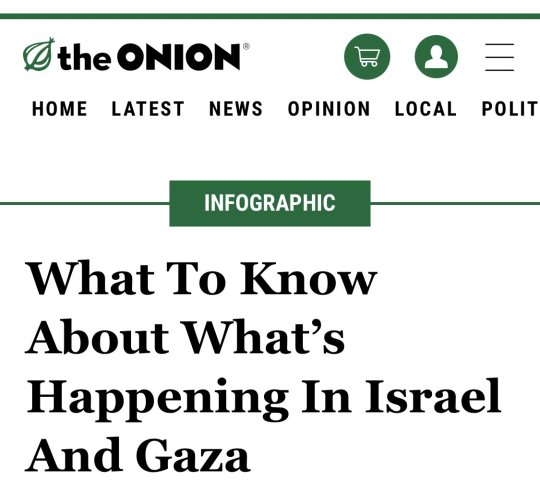
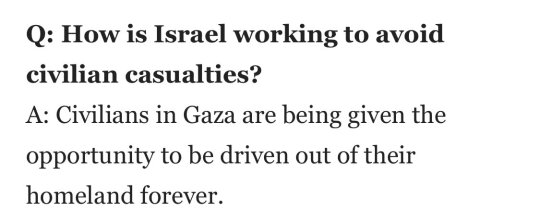
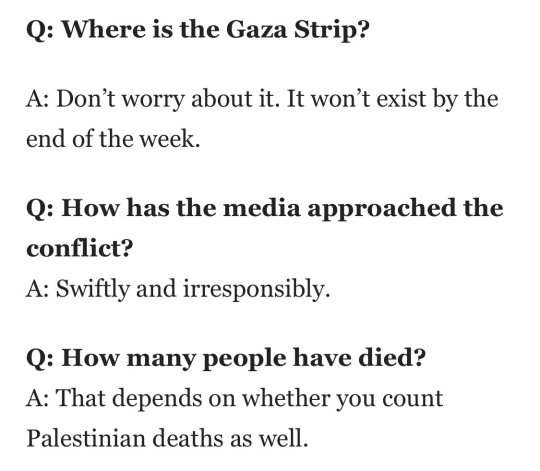
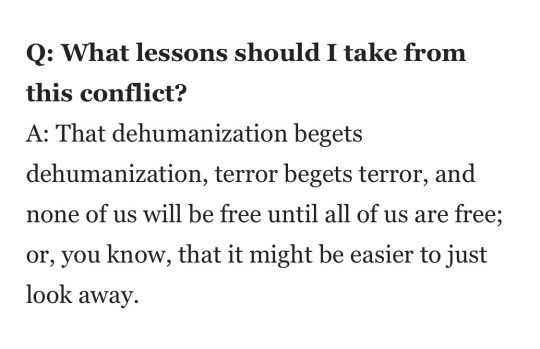
#palestine#israel#journalism#news#gaza strip#gaza#palestinians#democrats#republicans#woc#muslims#islam#human rights#conservatives#us politics
63K notes
·
View notes
Text
In WWII, in 6 years, 67 journalists were killed
In the Vietnam war, in 20 years, 63 journalists were killed
In Gaza, in 70 days, 89 journalists were killed

#palestine#free palestine#gaza#israel#genocide in gaza#free gaza#save palestine#social justice#human rights#journalism#us politics#yemen#jerusalem
43K notes
·
View notes
Text




link to the article
siraj's tumblr blog
siraj's gofundme
#og#palestine#siraj#palestine resources#gaza#free palestine#free gaza#gaza strip#save palestine#i stand with palestine#all eyes on palestine#palestine genocide#gaza genocide#substack#interview#article#journalism#politics
14K notes
·
View notes
Text



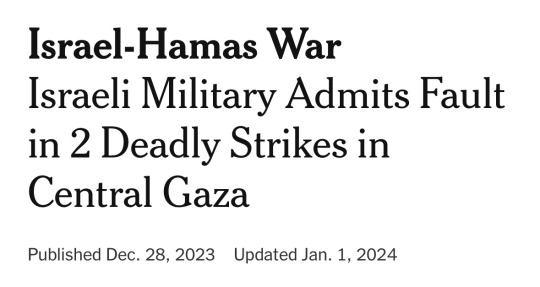
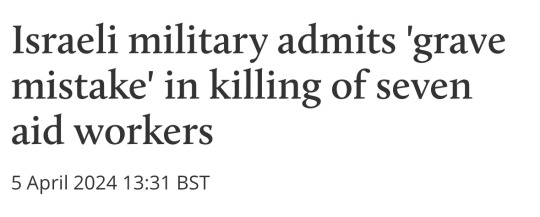


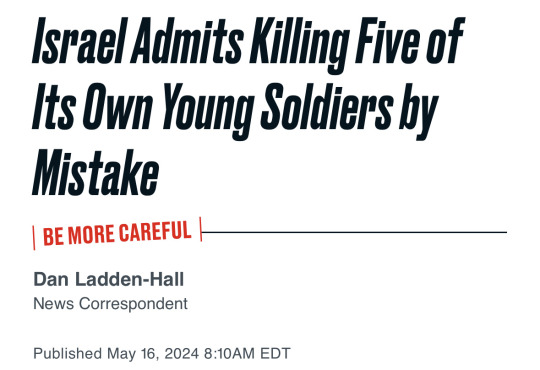

“Mistake”
#The “most moral army in the world” everyone!#free palestine#palestine#important#free gaza#gaza#Israel#benjamin netanyahu#journalism#current news#news#lies#propaganda#current events#all eyes on rafah#rafah#politics
11K notes
·
View notes
Text

#† journal#us politics#donald trump#fuck trump#kamala harris#kamala 2024#vote kamala#kamala for president#vote harris#usa politics#usa election
4K notes
·
View notes
Text
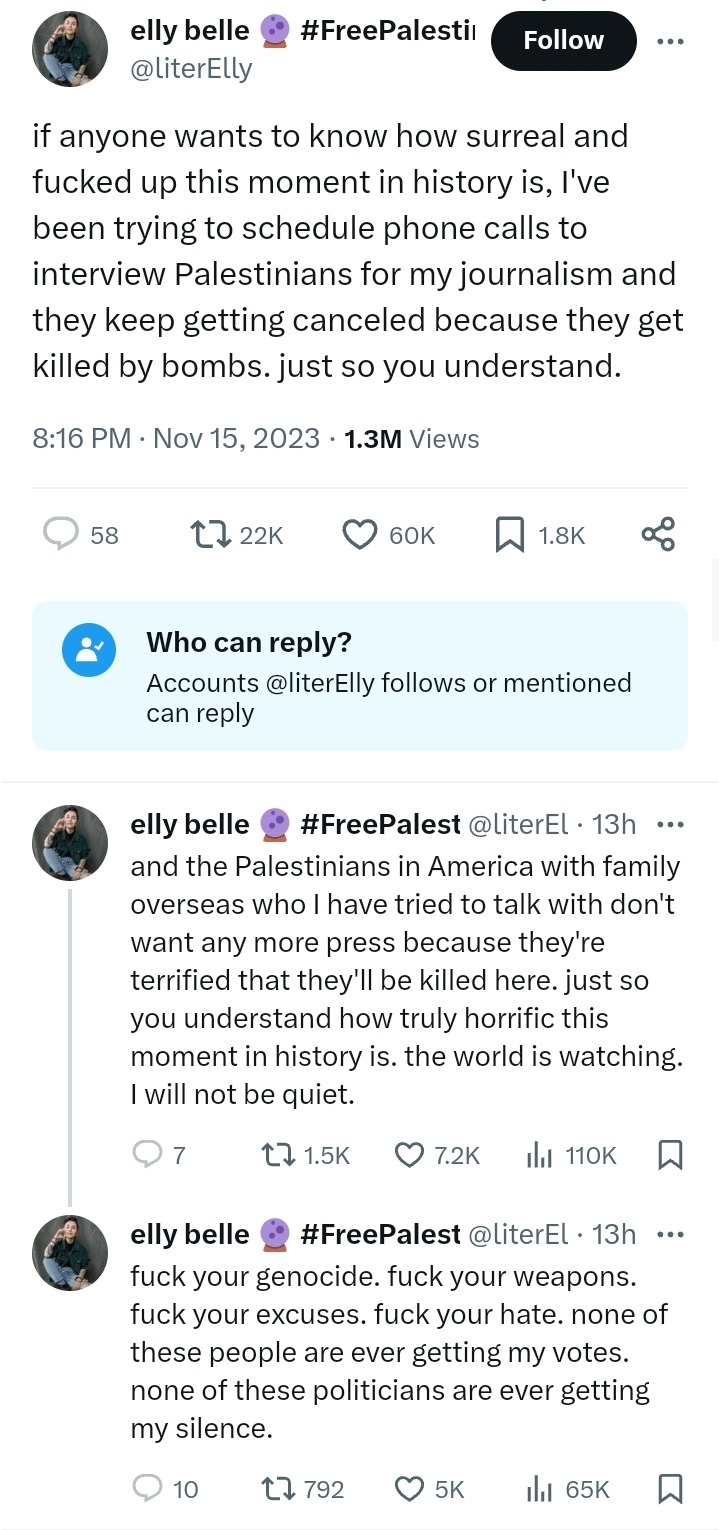
#this is like 9/11 all over again#gaza genocide#tw murder#tw death#ethnic cleansing#palestinian genocide#genocide joe#state terrorism#islamphobia#arab americans#media suppression#freedom of speech#human rights#us politics#white supremacy#journalism#free palestine#fascism#authoritarianism#knee of huss
11K notes
·
View notes
Text

5K notes
·
View notes
Text
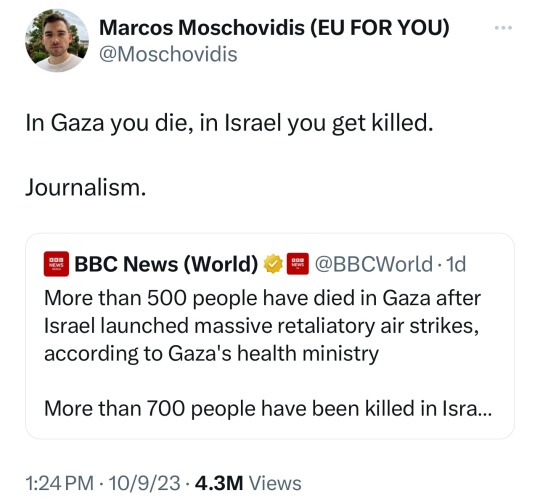

Elon will probably have the community note removed, like he usually does on any facts that don’t conform to his opinion
#politics#media bias#passive voice#palestine#israel#gaza#the media is complicit#community notes#twitter#journalism fail
9K notes
·
View notes
Text
WJMC Day 3
This morning was SO COOL!! We got to see Brian Lamb speak and he gave us tons of good advice and stories about his time in journalism. He was so engaging, and it didn’t feel like he was talking down to us (which a lot of adults tend to do with teens 😕)
Right after Brian we saw Tom Jackman from the Washington Post. He wrote a story live in front of us after interviewing a few people in the audience to show us the process of putting together a breaking news piece.
After lunch a few of us stopped by TJMaxx (i got some pants 😗) and got ice cream from an ADORABLE old lady.
We got to visit the National Press Club where journalists who don’t have an office can go to work on their stories, usually right after a press briefing. There we saw Carmella Boykin and Nisha Chittal speak.
Carmella works as a TikTok news media manager, and she told us all about how she got there and how she maintains the Washington Post’s account.
Nisha spoke about her career path and how she got to where she is at Vox, but the highlight for me of her speech was when she talked about still being a successful journalist without all kinds of “connections”. Honestly it has felt icky to think you need to know everyone and hear “It’s not what you know, it’s who you know” every 10 minutes.

After dinner we had another group meeting where we prepped for tomorrow’s simulation (yay…). After that, we got to play color group feud (like family feud) which was actually really fun!! Maroon lost super bad tho lol
Over 📻
0 notes
Text
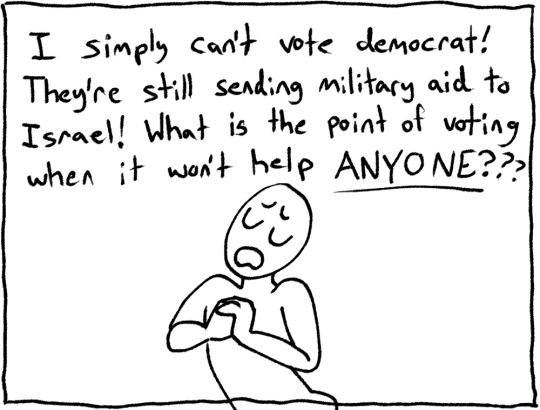


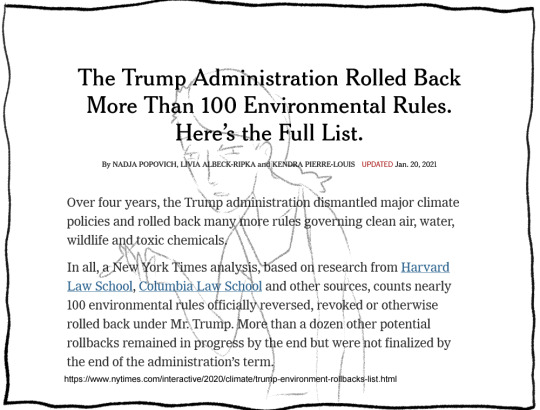
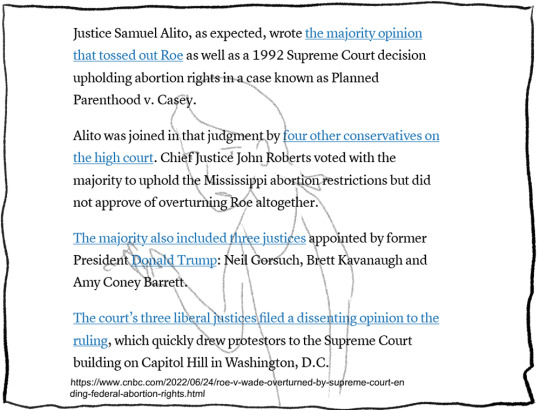
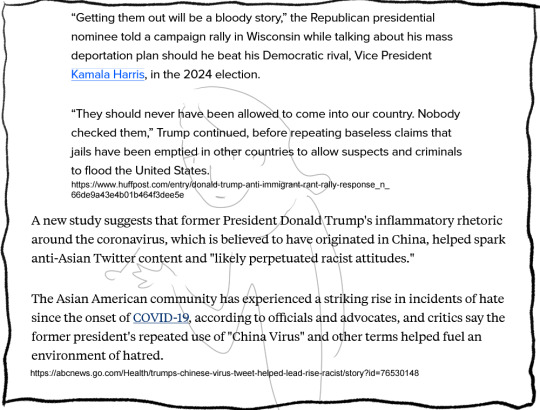
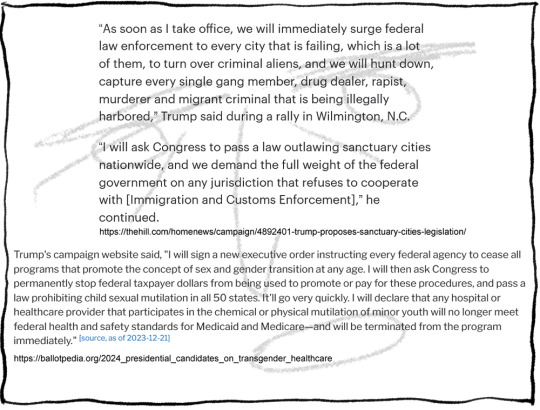
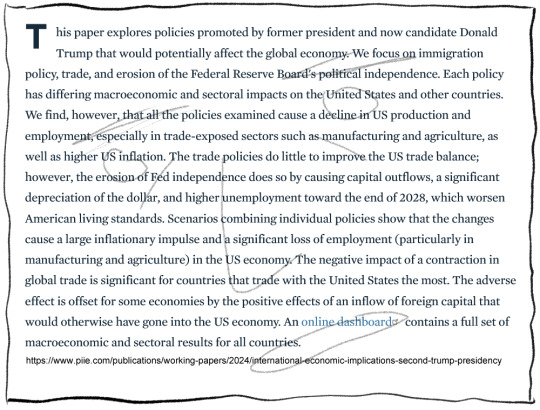
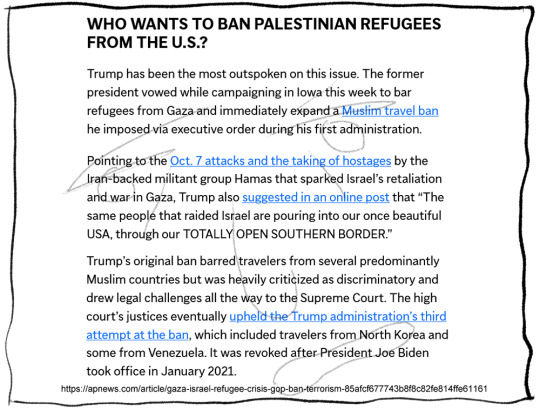

I only had 10 panels but here's some more fun exciting delightful articles about how republicans think public schools should make kids say christian prayers & teach students that slavery had no longterm affect on black communities, how trump makes fun of disabled people, & just a big categorized list of both republican & democrats' stances on various issues. Oh right the republicans are also lying & saying that the democrats gave all of FEMA's money to illegal immigrants even tho they're the ones who voted against FEMA funding. Not to mention that one time trump refused to fund California's wildfire relief until he was told there's people there who vote for him. Did all the anti-voters just conveniently forget how fucking bad it was when he was president last time.
Either you vote Harris-Wals or you let a bunch of hateful bigots run the US again. Stop using the horrible plight of the Palestinians to justify your voter apathy. It's really hard to help other people when you're fighting to survive. Put on your own oxygen mask first.
Any anti-voter morons will be blocked.
Articles referenced in screenshots under the cut:
https://www.nbcnews.com/politics/donald-trump/trump-israel-gaza-finish-problem-rcna141905
https://www.reuters.com/world/us/project-2025-what-is-it-who-is-behind-it-how-is-it-connected-trump-2024-07-12/
https://www.newsweek.com/hate-crimes-under-trump-surged-nearly-20-percent-says-fbi-report-1547870
https://www.nytimes.com/interactive/2020/climate/trump-environment-rollbacks-list.html
https://www.cnbc.com/2022/06/24/roe-v-wade-overturned-by-supreme-court-ending-federal-abortion-rights.html
https://www.huffpost.com/entry/donald-trump-anti-immigrant-rant-rally-response_n_66de9a43e4b01b464f3dee5e
https://abcnews.go.com/Health/trumps-chinese-virus-tweet-helped-lead-rise-racist/story?id=76530148
https://thehill.com/homenews/campaign/4892401-trump-proposes-sanctuary-cities-legislation/
https://ballotpedia.org/2024_presidential_candidates_on_transgender_healthcare
https://www.piie.com/publications/working-papers/2024/international-economic-implications-second-trump-presidency
https://apnews.com/article/gaza-israel-refugee-crisis-gop-ban-terrorism-85afcf677743b8f8c82fe814ffe61161
https://www.washingtonpost.com/business/2023/11/11/unrwa-gaza-humanitarian-aid-congress/
#nardacci doodles#journal comic#let's fucking vote#us politics#I still need to add alt-text to the images heck
2K notes
·
View notes
Text

#News#cnn#idf#israel#democrats#republicans#politics#gaza#gaza strip#woc#poc#women of color#muslims#jerusalem#genocide#journalism#usa
16K notes
·
View notes
Text

bisan's instagram post
#palestine#gaza#free palestine#free gaza#jerusalem#yemen#ceasefire#lebanon#middle east#human rights#united nations#politics#biden#colonialism#journalism
4K notes
·
View notes
Text
Twitter never has and never will be a vehicle for democratic expression. It is a privately held corporation that monetizes human expression and algorithmically maximizes its distribution for profit, and what turns out to be most profitable is sowing social, cultural, and political division. Its participants are a very tiny, skewed slice of humanity that has American journalism in a choke hold.
How Elon Musk Went from Superhero to Supervillain
5K notes
·
View notes